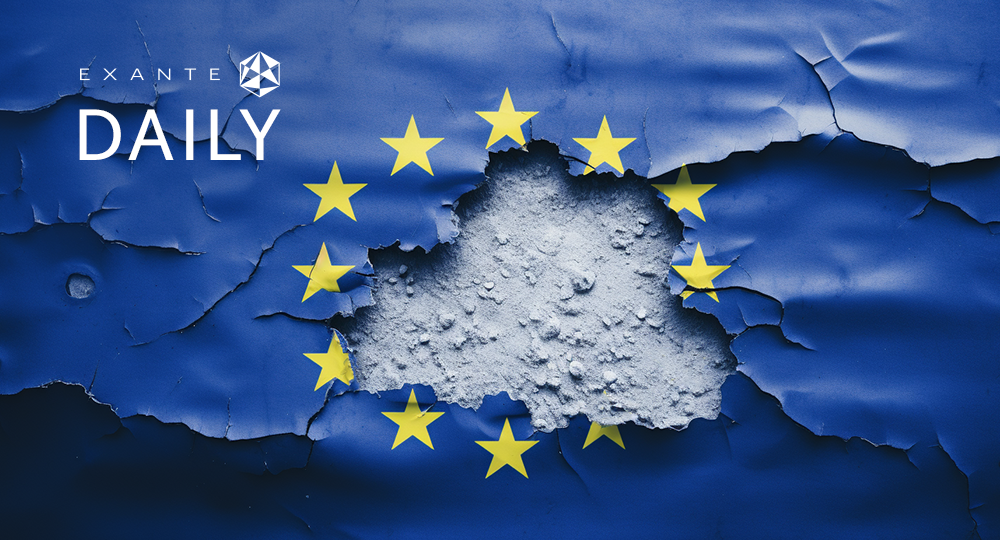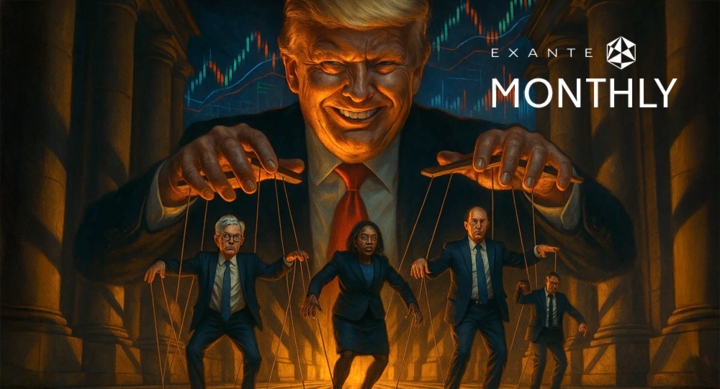Key data to move markets today
EU: Eurozone Core Harmonised Index of Consumer Prices, Eurozone Harmonised Index of Consumer Prices, speeches by ECB Executive Board members Isabel Schnabel and Frank Elderson, and a speech by Bundebank President Joachim Nagel.
US: ISM Manufacturing PMI, Prices Paid, Employment Index, and New Orders.
European Stock Indices
CAC 40 -0.76%.
DAX -0.57%.
FTSE 100 -0.32%.
Commodities
Gold spot +0.84% to $3,475.87 an ounce.
Silver spot +2.55% to $40.68 an ounce.
West Texas Intermediate +1.55% to $65.00 a barrel.
Brent crude +0.06% to $68.16 a barrel.
On Monday, precious metals rallied, with gold reaching its highest level in over four months and silver surpassing the $40 per ounce threshold for the first time since 2011. The gains were primarily supported by expectations of Fed interest rate cuts and a weaker US dollar.
Spot gold rose by +0.84% to $3,475.87 per ounce, its highest point since 22nd April. Concurrently, spot silver increased by +2.55% to $40.68 per ounce, marking its highest valuation since September 2011.
WTI crude oil prices settled over one percent higher on Monday, driven by mounting concerns that intensifying airstrikes in Russia and Ukraine could disrupt supplies. A weaker US dollar lent additional support to the market.
Brent crude futures settled up 4 cents, or +0.06%, at $68.16 a barrel. The WTI futures contract rose 99 cents, or +1.55%, to $65.00. There was no official settlement for WTI futures on Monday due to the US Labor Day holiday, which also resulted in muted trading volume for both benchmarks.
Supply concerns have been amplified by geopolitical developments, including a vow from Ukrainian President Volodymyr Zelenskiy on Sunday to retaliate against Russian strikes and order further military action deep inside Russia. Underscoring these market fears, weekly oil shipments from Russian ports have reportedly dropped to a four-week low of 2.72 million barrels per day (bpd), according to tanker tracker data.
Market participants are now looking ahead to the OPEC+ meeting scheduled for 7th September. A key question facing the producers' alliance is whether it will continue to raise output targets beyond the month of September.
Note: As of 5 pm EDT 1 September 2025
Currencies
EUR +0.21% to $1.1708.
GBP +0.27% to $1.3540.
Bitcoin -0.60% to $107,816.98.
Ethereum -2.38% to $4,262.27.
The US dollar fell to a five-week low on Monday as investors looked ahead to a series of US labour market reports that could influence the Fed's monetary easing path.
Market participants were also assessing several other factors, including US inflation data from last Friday, a court ruling declaring most of the US President's tariffs illegal, and political tensions surrounding the President's attempt to dismiss Fed Governor Lisa Cook.
The dollar index declined -0.17% to 97.69, after reaching 97.534, its lowest level since 28th July. The euro appreciated by +0.21% to $1.1708, while sterling was up +0.27% to $1.3540. Conversely, the dollar gained +0.10% against the Japanese yen to trade at ¥147.17.
Investors are primarily focused on this Friday's US nonfarm payrolls report for August, which will be preceded by releases on job openings and private payrolls.
Trading activity was subdued as US markets were closed in observance of the Labor Day holiday.
Fixed Income
US bond markets were closed in observance of the Labor Day holiday.
German 10-year bund +2.4 basis points to 2.751%.
UK 10-year gilt +3.0 basis points to 4.754%.
On Monday, long-dated eurozone bond yields rose as investors continued to assess high government debt levels globally while also reacting to strong business activity data from European economies.
Germany's 30-year yield climbed to a 14-year peak of 3.381% before moderating to 3.358%, an increase of +2.1 bps. This move was echoed across the region, with long-dated yields in France and the Netherlands reaching their highest levels since 2011. The day's activity extended August’s trend of rising longer-dated yields.
Market sentiment was also influenced by the eurozone's Manufacturing PMI, which rose to 50.7 in August from 49.8 in July, its highest reading in over three years. Germany’s 10-year yield was +2.4 bps to 2.751%, while France's 10-year yield was +2.1 bps to 3.534%.
Besides fiscal pressures and concerns of lower growth, political developments in France have weighed on the country's government bonds. Prime Minister François Bayrou's minority government faces a critical confidence vote on 8th September, which could risk its collapse. This uncertainty has contributed to a widening of the spread between German and French 10-year bond yields, which was last recorded at 78.3 bps.
Addressing the matter on Monday, ECB President Christine Lagarde stated that she is monitoring French bond spreads ‘very attentively,’ but affirmed that France is not currently in a situation that would necessitate intervention from the IMF.
Note: As of 5 pm EDT 1 September 2025
Global Macro Updates
ECB President Lagarde addresses a range of risks. In an interview with Radio Classique on Monday, ECB President Christine Lagarde addressed a range of economic risks. While she stated that France is not currently in a situation that would necessitate intervention from the IMF, she emphasised that the potential for a government to fall in the eurozone is a cause for concern. Lagarde underscored the importance of fiscal discipline, noting that the ECB is closely monitoring the situation with French bond spreads. The uncertainty over how France will deal with the eurozone’s widest budget deficit with a bitterly divided parliament has raised investor concerns. The spread between German Bunds and French OATs has widened to approximately 80 basis points, its broadest level since January, after Prime Minister Bayrou unexpectedly called for a vote of confidence on 8 September.
Lagarde also raised concerns about the independence of the Fed, warning that a loss of its autonomy would pose a serious danger to the global economy. This came in the context of the US President's bid to gain further control over the Fed. She affirmed the ECB's commitment to price stability, saying the bank would take all necessary measures to control inflation in the euro area. The ECB is widely expected to maintain its current policy at its September meeting, though market participants are divided on the need for further easing in Q4.
While every effort has been made to verify the accuracy of this information, EXT Ltd. (hereafter known as “EXANTE”) cannot accept any responsibility or liability for reliance by any person on this publication or any of the information, opinions, or conclusions contained in this publication. The findings and views expressed in this publication do not necessarily reflect the views of EXANTE. Any action taken upon the information contained in this publication is strictly at your own risk. EXANTE will not be liable for any loss or damage in connection with this publication.
Ця стаття надається вам лише для інформаційних цілей і не повинна розглядатися як пропозиція або запит на купівлю або продаж будь-яких інвестицій або пов'язаних послуг, які можуть бути згадані тут. Торгівля фінансовими інструментами пов'язана зі значним ризиком втрат і може підходити не всім інвесторам. Минулі результати не є надійним показником майбутньої ефективності.






